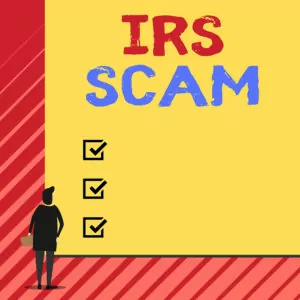 Nevadans have recently become a victim to a new kind of scam that is causing quite a disturbance. Public is advised to beware of any phone calls from unknown numbers, where a person claiming to be of authority might threaten you with criminal action over a tax fraud that you have not committed.
Nevadans have recently become a victim to a new kind of scam that is causing quite a disturbance. Public is advised to beware of any phone calls from unknown numbers, where a person claiming to be of authority might threaten you with criminal action over a tax fraud that you have not committed.
These phone calls are made in a smooth and professional manner, in order to trick the innocent public into believing that it’s an official communication from an actual Internal Revenue Service agent.
Recently a woman from Las Vegas received an alarming phone call from a man claiming to be an IRS agent and accused her of not paying her taxes for the last five years. Though the woman was regularly paying her taxes, the phone call seemed so genuine that it put even an honest taxpaying citizen in doubt. The woman was further informed that her bank account will be frozen very soon and that she will be arrested.
This is not the only incident; there have been thousands of such cases all over the country. People are being threatened of getting arrested or deported if they don’t pay up their taxes. Till last year, almost 55,000 such complaints were reported. Stats have been better this year though; FTC has reported that the number of complaints by Nevadans this year have been around 350.
What one can do is take a few measures to prevent themselves from becoming a victim to such scams. Firstly, if the person claims to know a lot of details about you such as the last 4 digits of your social security number or the names of your family members, don’t get intimidated by it. Obviously scammers do their research so if they are trying to pull a scam on you then they must know a few of your details. Secondly, even if the phone calls show up as IRS on your caller ID, don’t be fooled by it because the IRS will never initiate a conversation with you through phone. Their first contact is usually by direct mail.
At any point you receive such a call, never disclose your financial details no matter how official the phone call seems. Always note down the details of the caller and don’t engage them for too long, simply hang up. If they keep calling again and again then block the number. Make sure to report such a phone call by filing a complaint with the Federal Trade Commission or the Treasury Inspector General for Tax Administration. Spread the word and let your friends know of the preventive measures. Once the public stops falling for such scams, their frequency will automatically reduce.